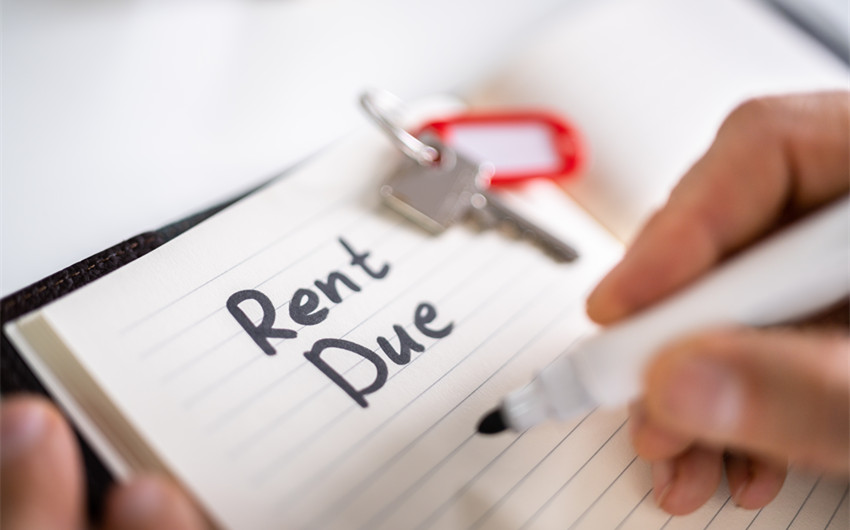10 Acceptable Reasons for Late Rent Payments—and How to Explain Them Honestly
Paying rent on time is one of the most important responsibilities you have as a tenant. It’s not just about maintaining a roof over your head—it’s also about building trust with your landlord, staying in good legal standing, and managing your financial health. But let’s face it: life is unpredictable. Even the most responsible renters can sometimes find themselves in a situation where they just can’t pay rent on the due date. Understanding what qualifies as acceptable reasons for late rent payments can help you navigate a difficult moment without burning bridges or facing eviction.
Renting is a two-way relationship. Landlords are people too, and most of them understand that emergencies and temporary setbacks happen. That said, how you communicate—and how quickly you act—can make all the difference between a landlord being flexible or deciding to take action. Below are ten acceptable reasons for late rent payments, along with advice on how to explain them respectfully and responsibly.
1. Job Loss or Reduced Hours
One of the most common and understandable reasons for late rent payments is losing a job or experiencing a sudden cut in income. If you’ve recently been laid off, had your hours reduced, or lost freelance clients, it’s likely that you’re trying to stretch a tight budget just to cover the basics. Rent is usually one of the largest expenses in a household, and when income stops or shrinks, it becomes a challenge to cover it immediately.
If this is your situation, don’t wait until the rent is overdue. Reach out to your landlord as soon as you know there will be a problem. Be honest about your employment status and let them know what steps you’re taking—whether it’s applying for unemployment, searching for a new job, or seeking financial assistance. If you can offer a partial payment or a clear timeline for catching up, that’s even better. Landlords appreciate proactive tenants who don’t disappear when things get hard.
2. Medical Emergencies
Another fully acceptable reason for late rent payments is a medical emergency. Whether it’s an unexpected surgery, a chronic illness flare-up, or a family member needing care, health crises can cause both emotional and financial strain. Medical expenses are often urgent and unavoidable, and they can eat up funds that were originally set aside for rent.
In these cases, documentation can help support your explanation. You don’t need to share personal medical records, but a brief note from a hospital or a billing notice can reinforce your honesty. Let your landlord know if the issue was sudden, how it affected your finances, and how soon you expect to resolve it. If possible, share your plan for getting back on track with payments. Most landlords would rather work with someone who’s upfront than deal with the stress of missed rent with no explanation.
3. Banking or Technical Issues
Sometimes the reason your rent is late has nothing to do with your financial planning or habits—it’s a matter of technology. Bank errors, payment processing delays, or glitches with online rent portals can all lead to late rent through no fault of your own. While these situations are frustrating, they’re also easily understood—especially in a world where digital banking is the norm.
If a technical issue is the cause of your delayed rent, act fast. Take screenshots of error messages, payment confirmations, or account notifications to show your landlord exactly what happened. Let them know you’re working with your bank or payment provider to fix the problem. Most landlords will appreciate the transparency and be willing to grant a short grace period for technical delays.
4. Waiting for Payroll
Not everyone gets paid on the first of the month—and unfortunately, rent is often due by the first. If your paycheck comes a few days later, you might find yourself in a tight spot even if you’re otherwise financially stable. This is especially common among hourly workers, freelancers, or anyone on a bi-weekly or inconsistent pay schedule.
If your rent will be a few days late simply due to payroll timing, this is usually an acceptable reason—especially if it’s a recurring issue you’ve already discussed with your landlord. Some landlords are willing to adjust due dates if they know your payment schedule, or they may agree to a short grace period each month. Again, the key is communication. Let them know exactly when you’ll be able to pay and stick to that date as reliably as possible.
5. Family Emergency
A family emergency—such as a death, serious illness, or urgent travel to support a loved one—can upend your financial planning and emotional stability. These moments are often filled with grief, stress, and logistical chaos. Paying rent may understandably take a back seat for a few days or even weeks.
In these cases, be honest with your landlord. You don’t need to overshare personal details, but letting them know that you’ve had a sudden and serious family issue can go a long way. If you’ve had a solid payment history, most landlords will give you the benefit of the doubt. When the emergency has passed, follow up with a payment plan or timeline to show that you’re getting back on track.
6. Unexpected Major Expenses
Sometimes, life throws a curveball in the form of a huge, unavoidable expense. Your car breaks down. Your computer crashes and needs replacing. Your child needs emergency dental work. These kinds of sudden costs can destroy your budget for the month, even if you’re usually very organized.
As a one-time reason, this is generally considered acceptable—especially if you’re proactive. Tell your landlord what happened, and explain how it affected your ability to pay rent. If you can offer a partial payment now and a firm date for the remainder, you’re far more likely to receive understanding. Life happens. Landlords know this too.
7. Clerical Errors or Miscommunication
Believe it or not, sometimes rent payments are late due to simple mistakes. You may have forgotten the due date, entered the wrong amount, or mailed a check to the wrong address. Or maybe you thought your roommate had already paid their half, and they hadn’t. Human error happens, and while it’s not ideal, it’s also not unforgivable.
If you’ve made a clerical mistake, own it. Let your landlord know immediately what happened and how you’re fixing it. Apologize sincerely and make sure it doesn’t become a pattern. Most landlords will be understanding the first time it happens, especially if you’ve been a reliable tenant in the past.
8. Delays in Government Benefits
If you receive Social Security, disability income, unemployment, or housing assistance, your rent might be late due to processing delays or red tape. Government payments are often distributed on a rigid schedule, and changes in benefit eligibility or paperwork errors can cause unexpected holdups.
This is an acceptable reason for late rent—especially if it’s accompanied by some documentation. Provide your landlord with copies of correspondence from the agency or confirmation that your application or payment is pending. Show that you’re not avoiding rent—you’re waiting on something beyond your control. Most landlords will work with you if they believe you’re being honest and proactive.
9. Domestic Violence or Personal Safety Concerns
In more serious and sensitive cases, late rent may be tied to issues of personal safety. If you’re escaping an abusive partner, dealing with stalking, or facing threats that force you to move quickly or seek legal help, rent may understandably not be your top priority.
This is a difficult topic, but it’s important to know that in many states and municipalities, tenants facing domestic violence are granted legal protections that may include rent relief, lease termination rights, or eviction defense. If this applies to you, seek help from local advocacy groups and legal aid services.
If you’re able and feel safe doing so, let your landlord know you’re dealing with a personal safety issue. Many will be sympathetic, and they may have resources or policies in place to support you.
10. Natural Disasters or Unexpected Events
Sometimes, late rent is caused by events that are entirely out of your control—wildfires, floods, tornadoes, hurricanes, power outages, or other emergencies. These events can shut down banks, prevent online payments, and make it physically impossible to get to your landlord or their office.
If a natural disaster or large-scale emergency has affected your ability to pay on time, landlords usually understand. The key is to document what happened, stay in contact when you’re able, and make a plan to catch up when the situation stabilizes.
Local laws may also offer protections in disaster situations, including temporary rent forgiveness or delays. Look into what’s available in your region and reach out to local housing support services if needed.




